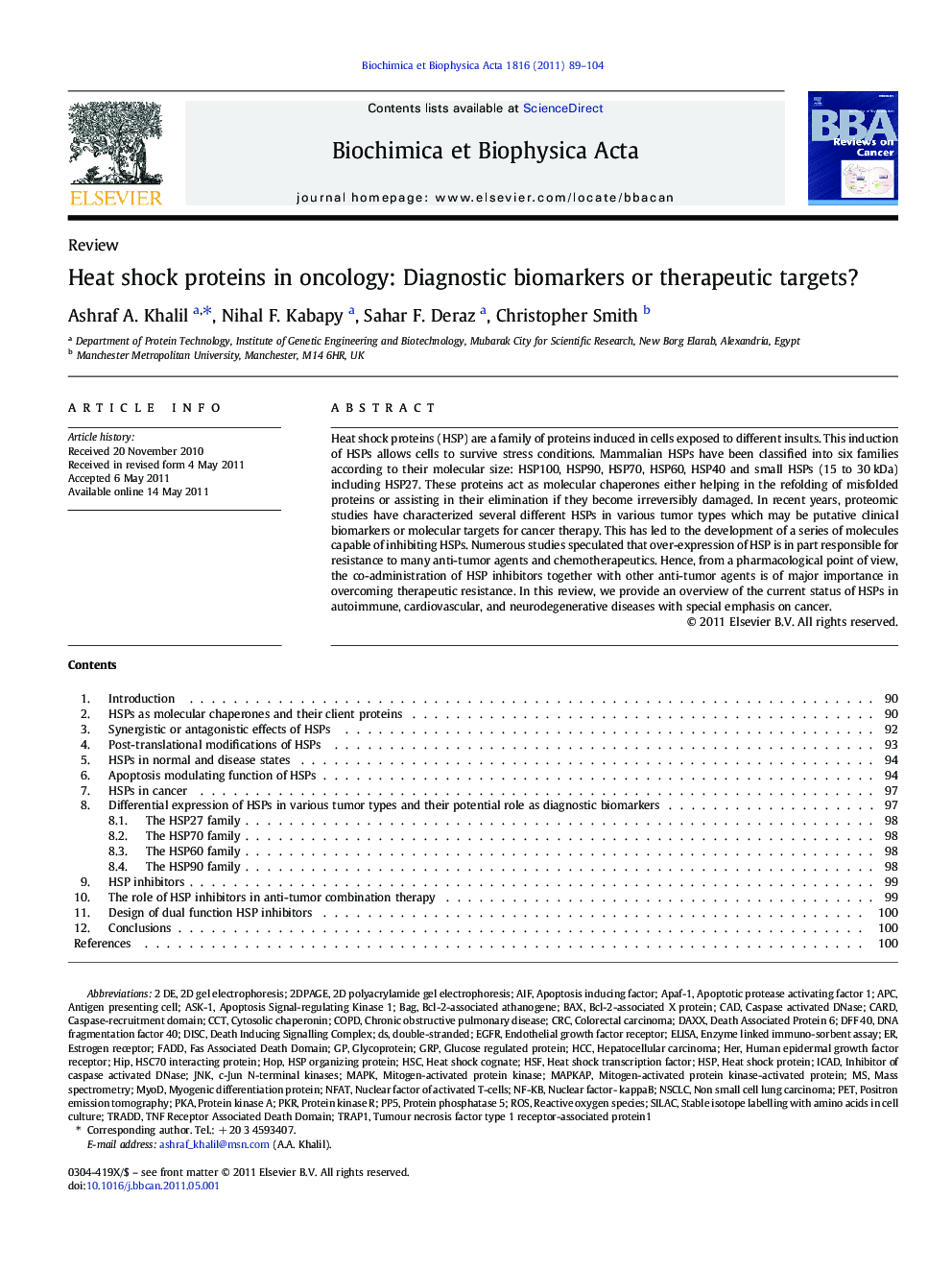| Article ID | Journal | Published Year | Pages | File Type |
|---|---|---|---|---|
| 8429465 | Biochimica et Biophysica Acta (BBA) - Reviews on Cancer | 2011 | 16 Pages |
Abstract
Heat shock proteins (HSP) are a family of proteins induced in cells exposed to different insults. This induction of HSPs allows cells to survive stress conditions. Mammalian HSPs have been classified into six families according to their molecular size: HSP100, HSP90, HSP70, HSP60, HSP40 and small HSPs (15 to 30Â kDa) including HSP27. These proteins act as molecular chaperones either helping in the refolding of misfolded proteins or assisting in their elimination if they become irreversibly damaged. In recent years, proteomic studies have characterized several different HSPs in various tumor types which may be putative clinical biomarkers or molecular targets for cancer therapy. This has led to the development of a series of molecules capable of inhibiting HSPs. Numerous studies speculated that over-expression of HSP is in part responsible for resistance to many anti-tumor agents and chemotherapeutics. Hence, from a pharmacological point of view, the co-administration of HSP inhibitors together with other anti-tumor agents is of major importance in overcoming therapeutic resistance. In this review, we provide an overview of the current status of HSPs in autoimmune, cardiovascular, and neurodegenerative diseases with special emphasis on cancer.
Keywords
ICADGRPAPAf-1MyoDpKaPP5DISCAPCHspASK-1FADDTRAP1NF-kBTRADDhsfCCTFas associated death domainTNF Receptor Associated Death DomainEGFRDeath Inducing Signalling ComplexHSCDAXXcaspase activated DNaseMAPKAPJnkNFATPKRc-Jun N-terminal kinasesHCCMAPKROSenzyme linked immuno-sorbent assayAIF2D gel electrophoresisHERBaxChronic obstructive pulmonary diseaseCOPDELISAPositron emission tomographycaspase-recruitment domaindouble-strandedcolorectal carcinomaNSCLCantigen presenting cellSILACheat shock cognateCADMass spectrometryapoptosis inducing factorapoptotic protease activating factor 1nuclear factor of activated T-cellsHeat shock transcription factorHIPHopPETBcl-2-associated X proteinglucose regulated proteinHeat shock proteinprotein phosphatase 5protein kinase Aprotein kinase Rmitogen-activated protein kinaseCARDNon small cell lung carcinomaHepatocellular carcinomaCRCBagapoptosis signal-regulating kinase 1GlycoproteinReactive oxygen speciesEstrogen receptorhuman epidermal growth factor receptorendothelial growth factor receptor
Related Topics
Life Sciences
Biochemistry, Genetics and Molecular Biology
Cancer Research
Authors
Ashraf A. Khalil, Nihal F. Kabapy, Sahar F. Deraz, Christopher Smith,
